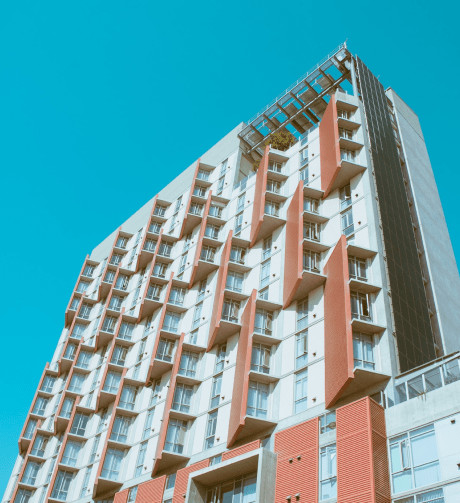Welcome to One Seed Capital’s Blog
Here you’ll find articles on investment strategy, the property market, economic news, and tax information.

The FAQ’s of Investing into Apartment Syndication
We answer many questions to our first time and also existing investors. We want to take some time to list most frequently asked questions here. We will improve this blog post overtime to include more and also some pictures/ videos to understand the Apartment Syndication world better.
1) What is real-estate syndication?
Syndication is a way to create a structure to pool money to buy an apartment building. Typically, we have GP’s (general partners) who are deal sponsors and LP’s (limited partners) who are passive investors. The GP’s conduct the due diligence, bring the deal to the LP’s and raise the equity required to close the deal. They also manage the asset on a long term basis.
2) Do you invest in your own deals?
Absolutely we do! We invest anywhere from 5% to as high as 20% equity in the deal. Also, bear in mind that the initial capital needed to pursue the deal is ours and is at highest risk. We can lose all that money. Also, we guarantee the loan. Hopefully, you can see that we have enough skin in the game.
3) Who is an accredited investor?
Regulation D of the SEC (Securities and exchange commission) act of 1933 defines an accredited investor as (OR)
- An individual with income exceeding 200k in the previous year, or 300k jointly with a spouse and a reasonable expectation of the level for the current year
- An individual (or jointly with a spouse) that has a combined net-worth in excess of $1MM at the time of the purchase of the security
4) Do I have to be accredited to participate in an offering?
Not necessarily. Our offering typically fall in two SEC regulated exemptions, 506b and 506c. While a 506c offering is limited only to accredited investors, a 506b is not.
5) What kind of returns can I expect and how do you calculate them?
Good question, especially given that there are a lot of different ways to measure performance. Our typical cash on cash return (the yield on your cash investment) range from 7-9% (varies from deal to deal). Our AAR (average annual return), which simply is the total return on your investment divided by the hold-time typically ranges from 16-20%. You may have heard of IRR or Internal rate of return which is yet another metric for measuring return. An IRR simply measures the rate of return you would sustain while staying invested in the project. An IRR is typically a better measure of performance and looks at both the cash flow and the time of investment, albeit is slightly more complex than the AAR. We do publish IRR’s metrics as well for all our projects.
6) What are your investment minimums?
50k is a good benchmark to go off of, although the minimums can change (go up for a particular deal). We like to start with a reasonable minimum to give folks a chance to participate.
7) What is your hold time?
Typically, we shoot for an average hold-time of 5 years. This could go up or down depending on market conditions. 5 years is overall a good ballpark which gives us enough time to execute our forced value strategy as well as leverage principal pay-down, in order to get a superior equity multiple on the investment.
8) What are the investment risks?
All investments carry risk, anyone who says otherwise does not know what they are doing, in our opinion. Real estate investments are also risky and are subject to a host of macro-economic factors. Albeit, multi-family apartments esp class B product in select US mid-western markets have demonstrated extraordinary resiliency to major economic storms, such as the 2008 mortgage crisis as well as current pandemic related economic damage. There is a lot of data that supports that claim and at a high level it is connected to a strong demand for rentals across the US, a perennially low interest rate environment fueling asset valuations as well as a under-supply of class B apartments in the US. We would be happy to talk in detail about these macro-variables and share data and reports corroborating these claims.
9) When will I get paid?
We do quarterly payouts which are typically direct deposits into the investors account.
10) How often do you communicate?
We send monthly updates on the investments progress. We share data on current execution plan progress and other performance metrics. As always, we are always happy to answer questions so as to ensure that you continue to be comfortable and happy with your investment.
11) What are the tax-implications of an investment like this?
Real estate is a tax advantaged investment. The cash on cash return that we generate is shielded by depreciation often resulting in a paper loss. There are strategies for deferring gains on capital on the asset sale (1031 exchange). We suggest talking to your CPA to leverage these strategies fully.
12) What is a sensitivity analysis?
We want to conservative in our forecasts and show investors what factors that can cause our performance to be better than our expectations or worse. A sensitivity analysis elucidates these range of outcomes. Often the variables that can cause these fluctuations are outside our control, albeit we try our level best to influence what we can.
13) Can I use a SD-IRA (Self Directed IRA) or solo 401K to participate?
Yes, please check out our blog on this:
https://www.zovest.com/blog/ira-401k-to-invest-in-apartments
14) What happens in the case I want to liquidate my investment?
The investment should be considered an illiquid investment. That said, we understand that life happens. We will consider each request in its own merit and will attempt to best accommodate you.
15) What fees do you charge?
Typically we charge 1% acquisition fee (on the gross asset value) and anywhere from 1-2% on the management side (on the gross rents). Our fee are meant to compensate us for the time/risk we outlay as we bring these investments to you.
To you health and wealth,
Zovest Team

